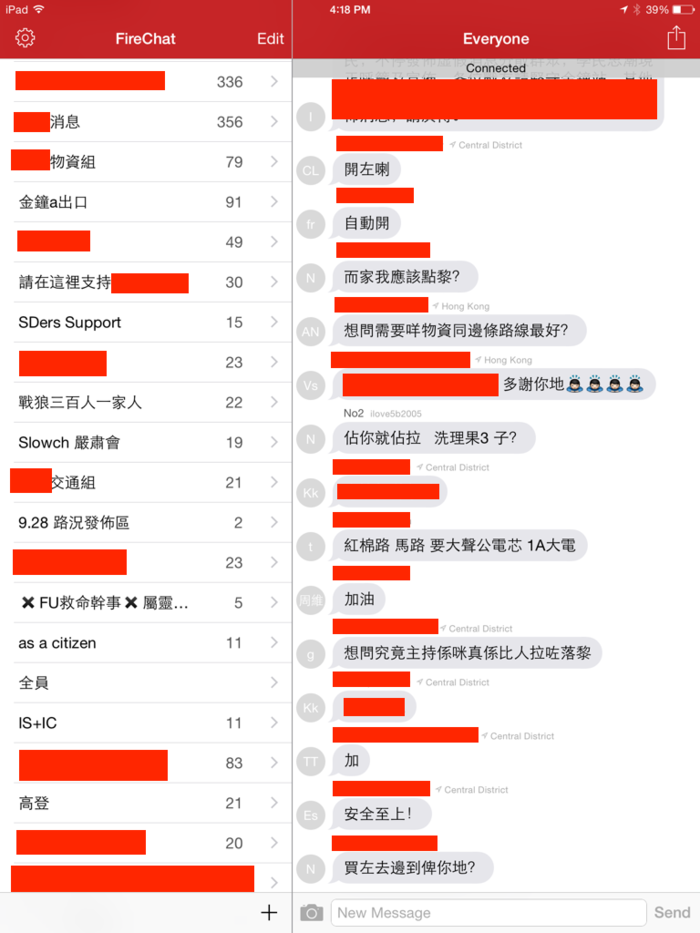
Tens of thousands of pro-democracy demonstrators have gathered in Hong Kong for days to peacefully protest proposed voting reforms set by China’s legislature. Thanks to the messaging app FireChat, these protesters are able to connect off the grid, making it much more difficult—if not impossible—for the authorities to shut them down by blocking Internet access.
(Which, by the way, hasn’t yet happened, although it’s certainly a possibility; China recently blocked Instagram access on the mainland, apparently to prevent dissemination of photos from the Hong Kong protests.)
“We didn’t say, ‘Oh let’s do an app for protesting,'” Christophe Daligault, CMO of Open Garden, the company behind FireChat, said in an interview. “We thought we’d be doing an app that keeps you connected that doesn’t rely on a centrally managed network.”
Crowds in Hong Kong hold up their phones as part of their pro-democracy protest http://t.co/h5XZSPC4Xl
— David Wyllie (@journodave) September 29, 2014
To enable Internet-free messaging, FireChat uses Apple’s Multipeer Connectivity network and Bluetooth. This type of communication is called “mesh networking,” meaning that each device acts as a node that can share network connectivity with other nearby devices. The range of one FireChat device is up to 200 feet, so it’s a practical communication tool in areas with many people and devices, like protests or other large events.
To sign up for FireChat, you’ll need access to the Internet at least once—to download it from an app store and pick a username. Daligault suggests selecting a pseudonymous username; while FireChat can be used for anonymous texts, it doesn’t provide private messages, so anyone can view the conversations.

In anticipation that police might down Internet access, student activist and protest leader Joshua Wong encouraged other protesters to download the app so people could communicate—it’s impossible to block FireChat the same way Chinese officials blocked Instagram, because FireChat keeps working whether you’ve got an Internet connection or not.
As a result of the protests, downloads and use of FireChat has skyrocketed in Hong Kong. At its peak, as many as 33,000 users from Hong Kong were on the app at one time, and FireChat attracted 100,000 new sign ups from the area in just 24 hours, Daligault said.
Though the team didn’t set out to give users a way to evade Internet blackouts, it’s one of the many ways people are using FireChat. Earlier this year, people in Iraq began using the application after the government started blocking social media and causing network outages to try and stop recruiting by the Islamic State group, also known as ISIS or ISIL. The Islamic State relies heavily on the Internet for communication and distributing propaganda.
See also: Why We Need Messaging Apps
While FireChat is seeing its popularity explode in Hong Kong and Iraq, mesh networking is also a beneficial tool for chatting in dense areas that lack connectivity—such as art and music festivals including Burning Man and Coachella.
Lead image by Nicolas Vollmer
















